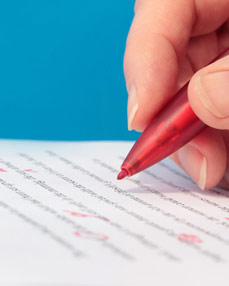
Editing
Writing is the first step. But a good editor can help shape your book, correct errors, and give your prose a professional polish - making all the difference in how your book is perceived in the marketplace.
Steps in Editorial
- Developmental editing
- Copy editing
- Fact checking
- Legal vetting